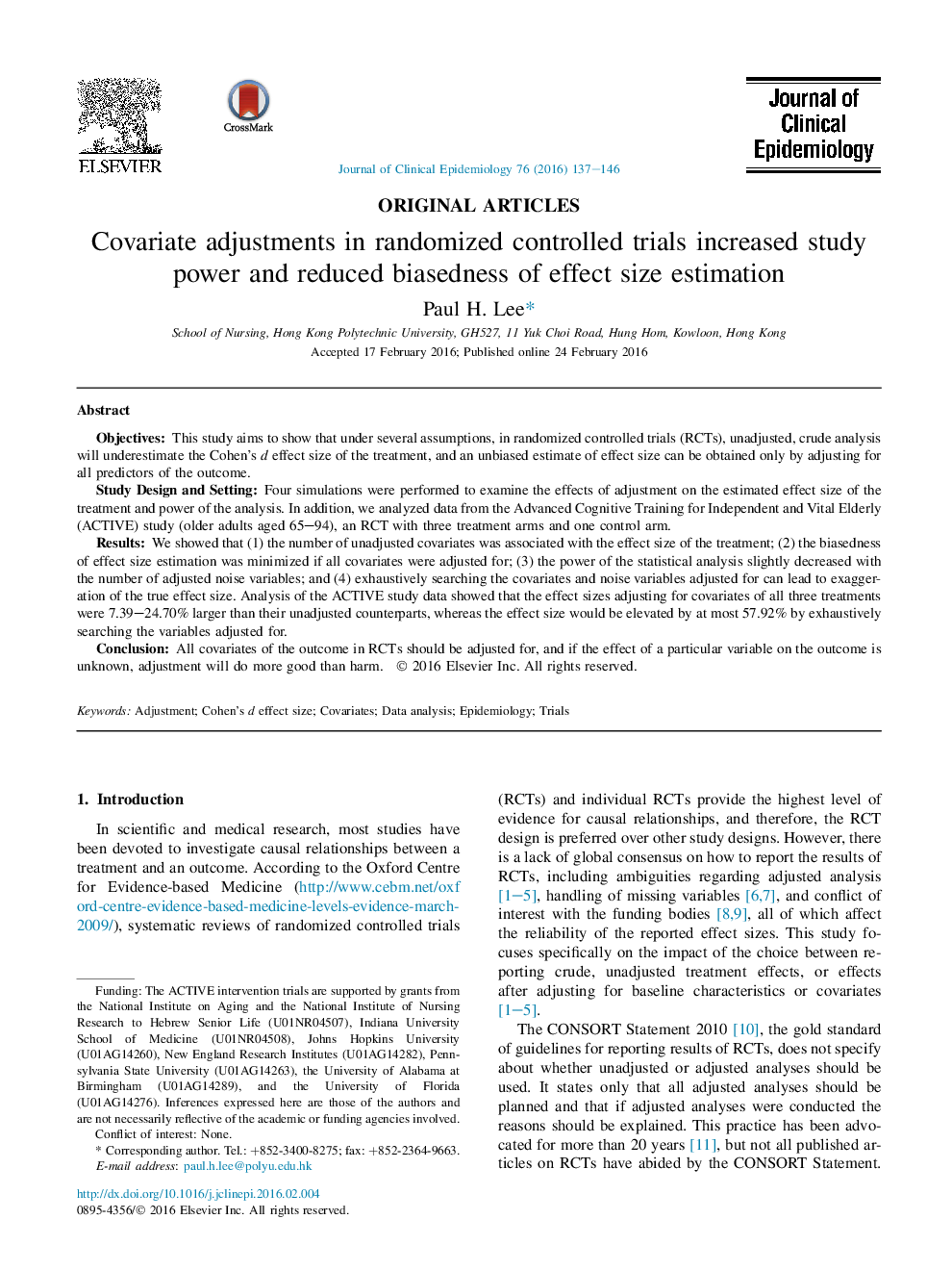| Article ID | Journal | Published Year | Pages | File Type |
|---|---|---|---|---|
| 5121937 | Journal of Clinical Epidemiology | 2016 | 10 Pages |
ObjectivesThis study aims to show that under several assumptions, in randomized controlled trials (RCTs), unadjusted, crude analysis will underestimate the Cohen's d effect size of the treatment, and an unbiased estimate of effect size can be obtained only by adjusting for all predictors of the outcome.Study Design and SettingFour simulations were performed to examine the effects of adjustment on the estimated effect size of the treatment and power of the analysis. In addition, we analyzed data from the Advanced Cognitive Training for Independent and Vital Elderly (ACTIVE) study (older adults aged 65-94), an RCT with three treatment arms and one control arm.ResultsWe showed that (1) the number of unadjusted covariates was associated with the effect size of the treatment; (2) the biasedness of effect size estimation was minimized if all covariates were adjusted for; (3) the power of the statistical analysis slightly decreased with the number of adjusted noise variables; and (4) exhaustively searching the covariates and noise variables adjusted for can lead to exaggeration of the true effect size. Analysis of the ACTIVE study data showed that the effect sizes adjusting for covariates of all three treatments were 7.39-24.70% larger than their unadjusted counterparts, whereas the effect size would be elevated by at most 57.92% by exhaustively searching the variables adjusted for.ConclusionAll covariates of the outcome in RCTs should be adjusted for, and if the effect of a particular variable on the outcome is unknown, adjustment will do more good than harm.
